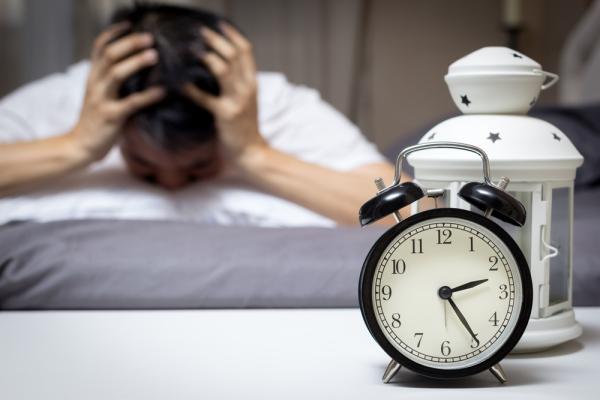Millions of adults simply cannot go to sleep at the conventional time that most Americans do. That's usually because, as we've heard time and again, their internal circadian clocks are "programmed" differently. And no matter how they try, these folks are resigned to being so-called "night-owls."
However, researchers looking to investigate further now say they know what physical difference prevents these adults from hitting the sack earlier. They say the cause is a gene mutation, which has just been identified by a scientific team at The Rockefeller University in New York.
"This study is the first to implicate a gene mutation in the development of DSPD," or Delayed Sleep Phase Disorder, which night owls have, according to a statement that announced the study. It's estimated that 10 percent of American adults have altered circadian clocks.
A paper published April 6 in the journal Cell reports on the existence of "a gene called CRY1 [that] alters the human circadian clock, which dictates rhythmic behavior such as sleep/wake cycles," the statement added.
“Compared to other mutations that have been linked to sleep disorders in just single families worldwide, this is a fairly impactful genetic change," says senior author Michael W. Young, the Richard and Jeanne Fisher Professor and head of Rockefeller’s Laboratory of Genetics, the university's press office states. "According to the new research, the mutation may be present in as many as one in 75 people in some populations."
Young, along with research associate and first author Alina Patke, teamed with clinical researchers from Weill Cornell Medical College in New York, and Bilkent University in Ankara, Turkey, to study the sleep patterns of 70 Turkish adults, of which 39 had the mutated CRY1 gene. "The carriers had delayed sleep onset times and some had fractured, irregular sleep patterns."
 For non-carriers of the mutation 4am was the midpoint of the sleep cycle, but for those with the mutation that midpoint shifted ahead to daybreak, 2 to 4 more hours.
For non-carriers of the mutation 4am was the midpoint of the sleep cycle, but for those with the mutation that midpoint shifted ahead to daybreak, 2 to 4 more hours.
"In a healthy circadian clock, a handful of genes turn on and off over a 24 hour cycle," the university stated. "The protein made by CRY1 is normally responsible for suppressing some of these genes during certain parts of the cycle. But Young and Patke discovered that the mutation identified in the patient made the CRY1 protein more active than usual, keeping other clock genes switched off for a longer period of time."
It's estimated by the Centers for Disease Control that more than 50 million adults have some sort of sleep disorder. And those whose circadian clocks are disrupted and are connected to the normal patterns of most Americans face repeated bouts of fatigue.




